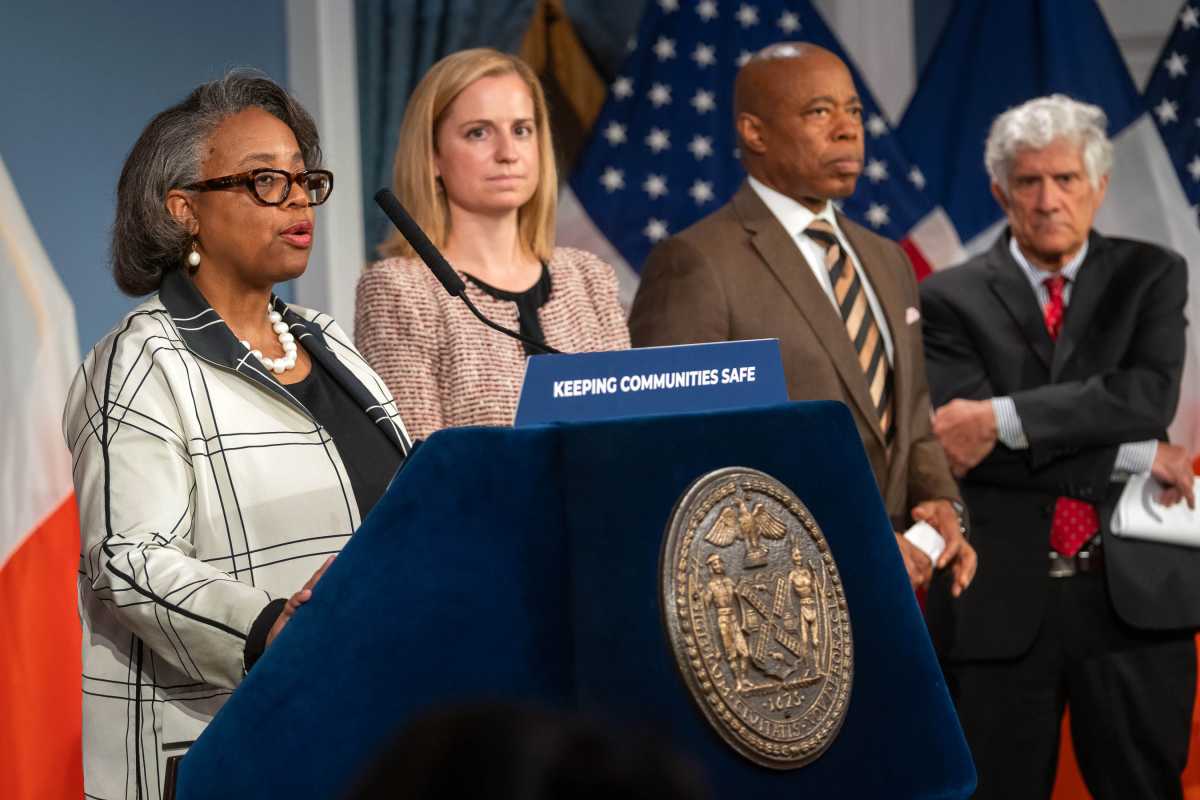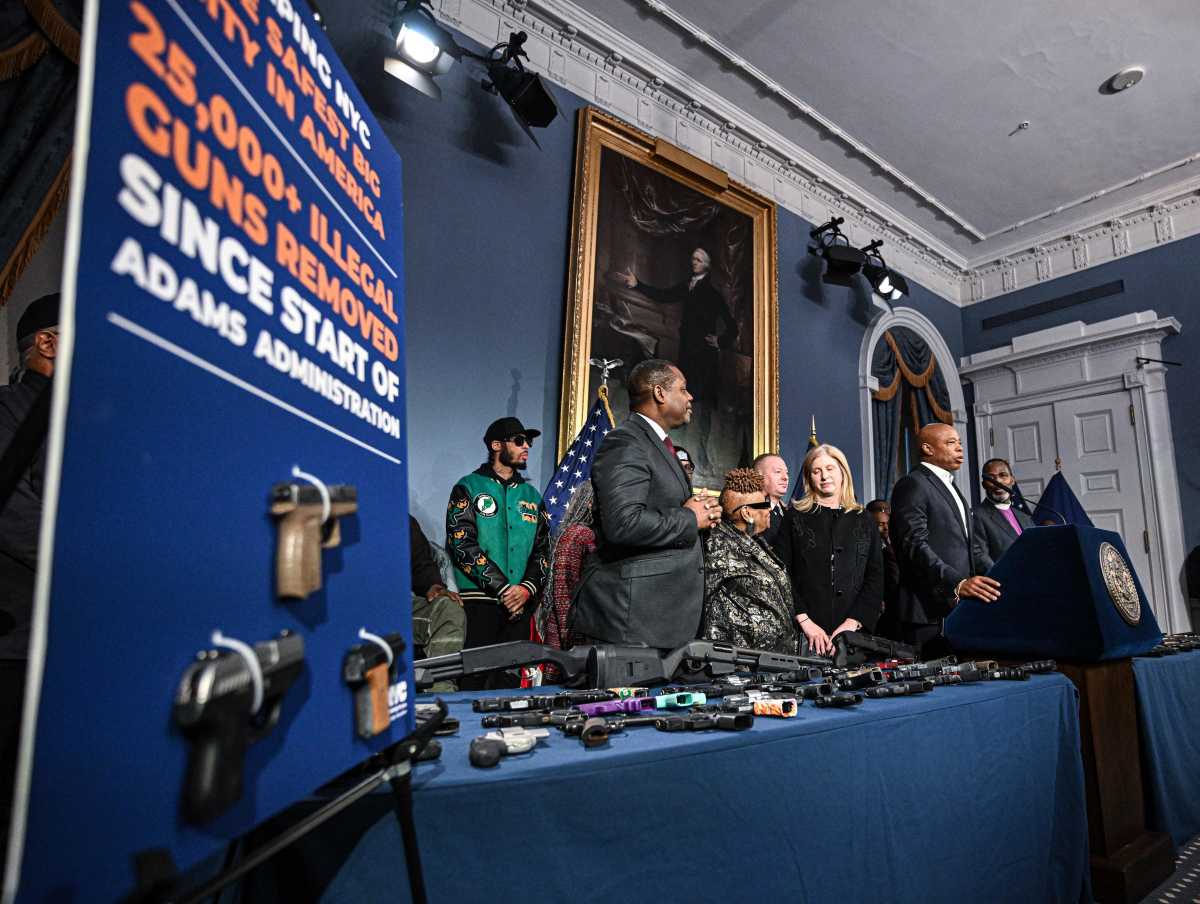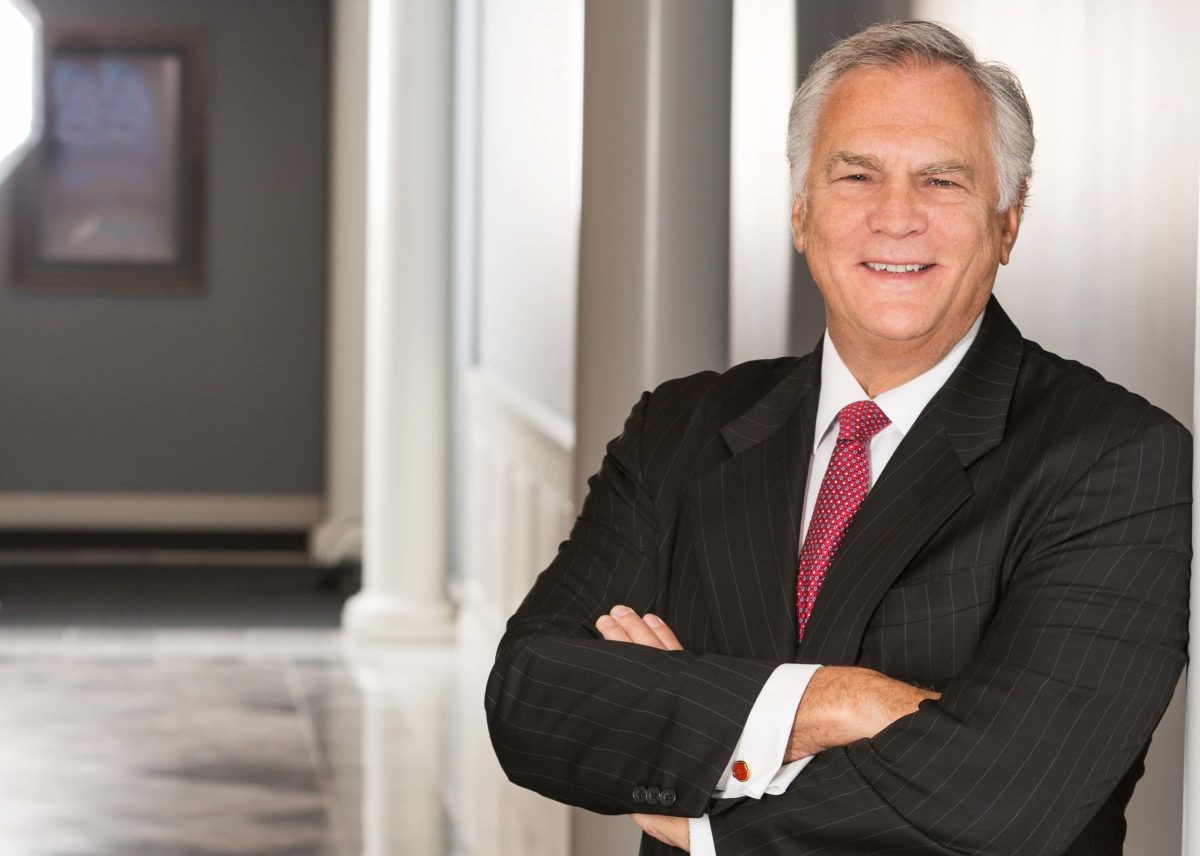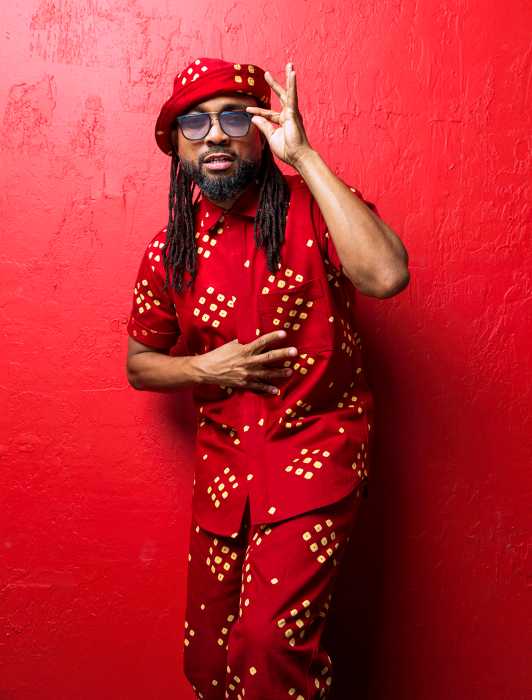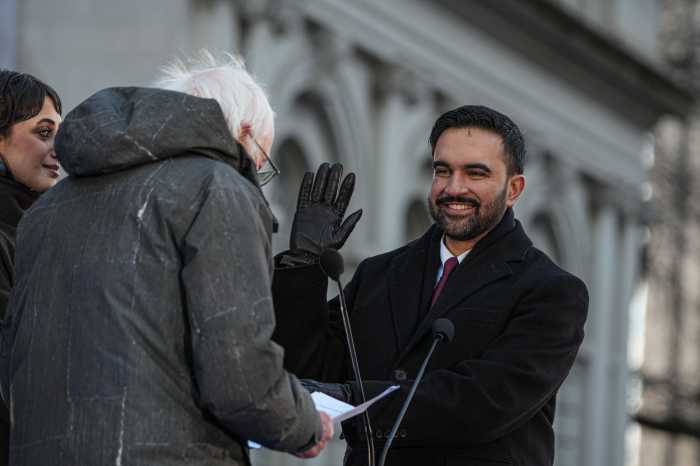A state Senate candidate was asked sexist questions at a political club related to her role as a mother of young children, and she and other moms running for office are calling for an end to a double standard that never sees similar questions asked of men.
Francoise Olivas is a Greenpoint resident running for the Democratic nomination in the new Senate District 17, which includes Greenpoint but is mostly situated in Queens, running the gambit from Long Island City through Sunnyside, Maspeth, Ridgewood, Glendale, Woodhaven, and Richmond Hill. Pre-pandemic, Olivas owned a sustainable fashion store in Greenpoint after working for a number of fashion brands and running her own label, but has gotten more involved in politics over the past two years, serving as Vice President of Community Outreach at the Ruth Bader Ginsburg Democratic Club and as a judicial delegate in County Committee.
During a recent endorsement interview with the North Brooklyn Progressive Democrats, a Greenpoint-based political club where she was formerly director of organizing, Olivas was subjected to a line of inquiry from two members questioning whether she was capable of balancing the responsibilities of elected office with the requirements of motherhood.
“As a senator, there are certain responsibilities that you have that you have to go to Washington DC, you have to go to Albany, New York and things of that nature, and travel around,” asked a club member of Olivas, according to audio released by Vote Mama, a political action committee supporting moms running for office. “How do you plan to do that and have a child at the time? You said you were going to bring a child with you, this, that, and the other.”
This week, @OlivasforNY was asked whether she can be both a mom and a Senator by @nbpdems. Not once, but twice.
Even in one of the most progressive counties in the nation, the political viability of mothers is doubted. This is why we fight to elect Democratic moms.
THREAD 👇 pic.twitter.com/HvfL6bn43s
— Vote Mama (@VoteMamaPAC) March 2, 2022
In further audio shared with Brooklyn Paper, even after being chastised for asking the question, the member continued to ask a similar line, going so far as to suggest that the parent of a young child should forego working to raise their youngster. “Especially if the child is a certain age, if you have a child 1-6, 7 years old, that child needs a parent, mother or father, there most of the time,” he said.
“Dude, get out of 1954,” another person in attendance yelled out.
Earlier, another member of the club asked a similar question, and even grilled Olivas for attending the meeting on Zoom in order to take care of her daughter (who was assigned a workbook during the meeting).
“How do you plan to juggle being a mom and running for a seat, when sometimes you have issues coming to the meetings and doing Zoom because you have a child,” the woman asked Olivas. “And this is more of a responsibility.”
Olivas, who is a first-time candidate and has a 4-year-old daughter, was taken aback by the question, which she hypothesized would never have been asked of a man. “It’s hard to believe the fact that in 2022 in New York City, in one of the most progressive cities in the country, that this is a question being asked,” she told Brooklyn Paper.
But it’s one that women, particularly mothers of young children, get all the time, and, in the view of those asked, reflects deeply ingrained sexist assumptions about child-rearing being solely a mother’s responsibility. It also, in Olivas’ view, shows how bereft of moms many legislative bodies are.
“This is a question that is asked of mothers all the time,” Olivas said. “There were so many other questions I felt that would’ve been appropriate. But we need more moms in office. Not having a mother at the table when negotiations are being made about childcare, eldercare, education, the environment, we need that lived perspective at the table.”
Liuba Grechen Shirley, the founder of VoteMama and a former candidate for Congress on Long Island, and who famously won a lawsuit allowing her to use campaign funds towards childcare for her then 3-and-1-year-olds, says the question is a constant hurdle thrown at women all over the country, and that when she herself ran for Congress, the presence of her young kids was often derided as a distraction or even a political prop.
“Running for office as a mom can be isolating,” Grechen Shirley said. “I was called a bad mother, I was told I used my kids as political props. Every time I brought my kids to an event I was questioned.”
“I cannot tell you a mom who has run for office who has not been asked that question,” she continued. “When a man has a child he is considered more responsible, someone who understands what his constituents are going thru. People trust a man who has children more but if it’s a woman who has children, she’s immediately looked at as a political liability.”
Stu Sherman, who ran for City Council in North Brooklyn’s 33rd District last year while raising a newborn daughter, agreed, saying that he never encountered the same question despite constantly being on Zooms where his child could be heard screaming in the background.
“While I was running in 2021 for city council, I had a very young child who could be heard at times or I was even holding during meetings, and no one asked me,” Sherman said. “No one asked me if I could raise a child and also hold offivce. I was surprised to hear someone asked that of anyone, but I shouldn’t have.”
Sherman was a member of North Brooklyn Independent Democrats’ Executive Committee, and as such was present at endorsement meetings, until Wednesday, when he said he resigned from the club owing to the sexist questions lobbed at Olivas.
The club did not respond to a request for comment from Brooklyn Paper, but posted a statement on its Twitter page saying the questions “do not reflect the opinion of the Executive Committee.”
“At Mon’s endorsement meeting, two members expressed concern that one of the candidates, Francoise Olivas, may not be capable of successfully serving as a state senator due to her being a new mother,” the statement read. These comments do not reflect the opinion of the Executive Committee.”
“North Brooklyn Progressive Democrats supports women’s equality,” the club continued in a follow-up tweet. “Women, whether a single mother or partnered, are no more or less capable in the workplace, education, or politics than their male counterparts in balancing the responsibilities of parenting. We welcome your feedback on this matter here as well as at our next meeting, scheduled for March 14th.”
Another candidate for City Council in North Brooklyn last year, April Somboun, said she had a similar experience in the club, with members questioning her status as a mom and her choices in running for office with young children. Despite the relative anonymity of clubs and their members, their endorsements can be significant, especially in hyperlocal races where small-scale mobilization can tip the scales of an election.
“It certainly hurts people,” Somboun said. “Endorsements matter, they help you, they help you on the ground, field organizing, getting a word out.”
As for Olivas, she says that she can’t say whether she’ll actually earn the club’s endorsement in the new seat, which was created by the State Legislature during the redistricting process earlier this year, as legislators sought to reapportion Albany to include a representative from a new, Hispanic-plurality seat mostly situated in Queens, as well as a plurality Asian district in South Brooklyn. She is facing stiff competition in the primary, which also includes democratic socialist Kristen Gonzalez, former City Council Member Elizabeth Crowley, and former Council candidate Japneet Singh.
Olivas says she’s not too concerned anymore about the club’s endorsement, and even said that the whole experience has been somewhat “energizing.”
“This is about breaking down barriers for mothers, not just in New York City but across the country to run for office,” Olivas said. “There’s this notion that moms should not hold elected office, and I just think that’s absurd.”





